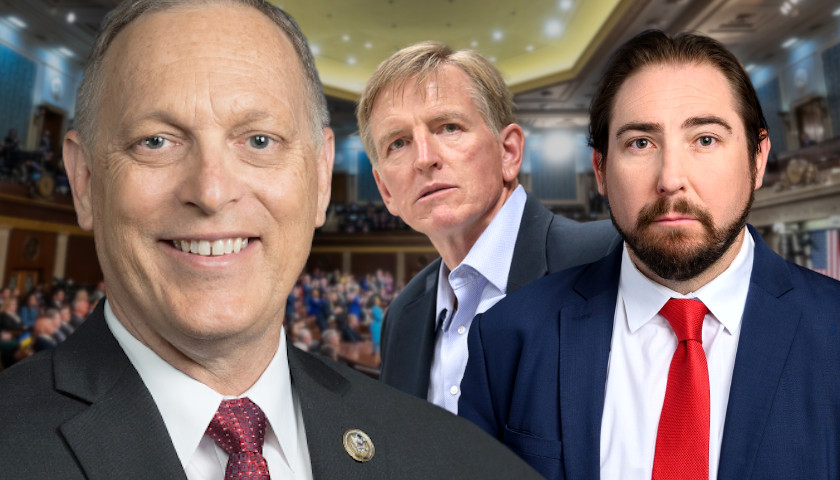The United States House of Representatives began voting Tuesday to elect a new Speaker of the House. Yet, Republican Party frontrunner Kevin McCarthy of California has not secured enough votes to achieve the title. In total, 19 Republicans voted against him, including three GOP members from Arizona.
“We barely got through half the ballot before confirming that McCarthy is still well short of 218 votes. My colleagues have made clear that our party deserves a new leader. McCarthy should stand down and allow us to select someone else in the next ballot,” tweeted Arizona Rep. Andy Biggs (R-AZ-05).
We barely got through half the ballot before confirming that McCarthy is still well short of 218 votes.
My colleagues have made clear that our party deserves a new leader.
McCarthy should stand down and allow us to select someone else in the next ballot.
— Rep Andy Biggs (@RepAndyBiggsAZ) January 3, 2023
Biggs ran against McCarthy, and two other Arizona members, Representative Paul Gosar (R-AZ-04) and Representative Eli Crane (R-AZ-02), sided with Biggs over McCarthy. Biggs received ten votes in total. Ohio Rep. Jim Jordan also received six votes, with other state Reps. getting one-off votes, enough to keep McCarthy off the seat.
“I just voted for [Biggs] to be Speaker of the House,” tweeted Gosar.
I just voted for @RepAndyBiggsAZ to be Speaker of the House.
— Rep. Paul Gosar, DDS (@RepGosar) January 3, 2023
During the second round of voting, McCarthy did not receive the necessary votes to become the speaker. Again, 19 members, including Biggs, Gosar, and Crane, voted against him, consolidating behind Jordan.
“McCarthy has lost two ballots already. It’s time to move on,” Biggs tweeted following the second loss.
In a December opinion piece, Biggs explained why he chose to run against McCarthy to break up the establishment. Biggs stated that the left has systematically taken over American institutions. Still, with Republicans taking control of the House this session, it presented a rare opportunity to get someone America First in a significant position.
“We will never defeat or change the status quo, which is taking us to the Leftist’s vision of America, by selecting a status quo candidate as the third most powerful person in the government. The Republican candidate was created by, elevated by and maintained by the establishment,” Biggs wrote. “We do not get an opportunity for such revolutionary change often.”
As reported by Axios, this is the first time in a century that more than one ballot was needed to confirm a speaker. To become the speaker, a nominee must win the majority of the House, typically 218 votes. If a majority is not achieved, the process starts over, and votes are cast again. The process will repeat until a winner is decided.
The last time a candidate did not win on the first vote was in 1923, when it took 14 votes to choose Fredrick Gillett (R-MA). The longest-recorded speaker election was for Massachusetts Rep. Nathanial Banks, which lasted two months and required 133 ballots.
– – –
Neil Jones is a reporter for The Arizona Sun Times and The Star News Network. Follow Neil on Twitter. Email tips to [email protected].
Photo “Paul Gosar” by Gage Skidmore. CC BY-SA 2.0.





